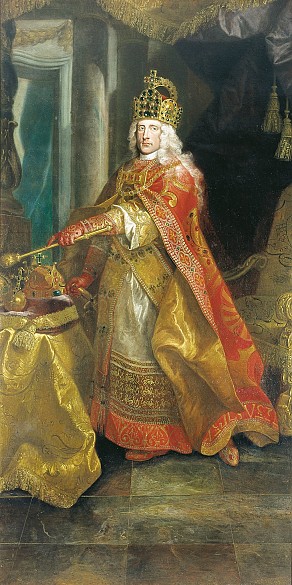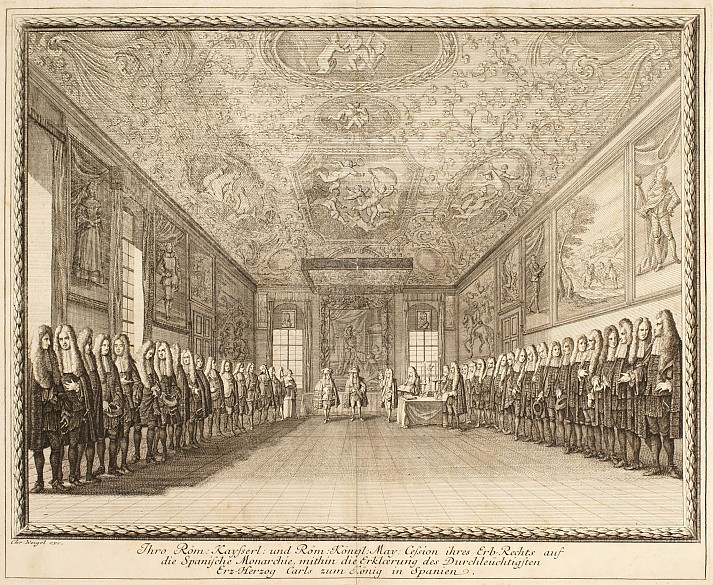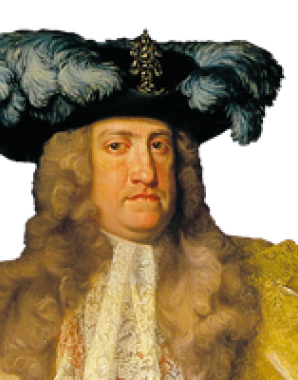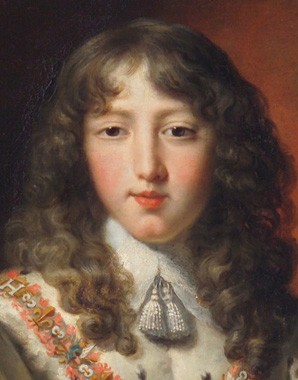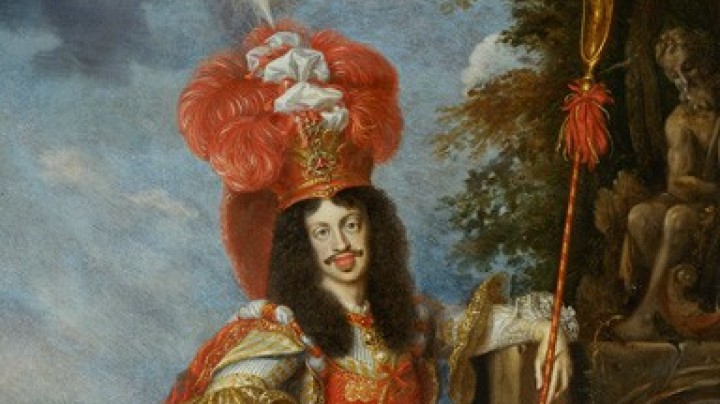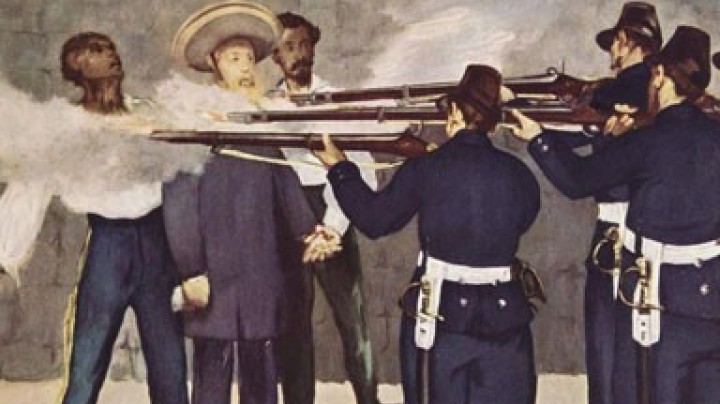The battle for the Spanish inheritance
The beginning of the eighteenth century saw Austria and France at war over the Spanish succession. Although the crown finally fell to the Bourbons, the Habsburgs did not come out of the war empty-handed either.
Lines composed by the Prussian king Frederick II on Prince Eugene’s victory over the French in ItalySeht dort Eugen auf seinem kühnen Zuge
Die Franken jagen aus der Lombardei.
Die Alpen bahnen ihm den Weg; im Fluge
Eilt er hinüber, und Turin ist frei.
Marsin in seiner Schanzen weitem Feld
Ist rings zu schwach zu zähem Widerstand.
So bringt durch eine Schlacht der rasche Held
Italien wieder in des Kaisers Hand.[See Eugene on his bold campaign, driving the French out of Lombardy; the Alps open up a path for him, as if on wings he speeds across the mountains, and Turin is free. Marsin in his broad entrenchments is altogether too weak to put up serious resistance – and with a battle the swift hero restores Italy to the Emperor’s hand.]
‘Let us march first – and then we will find allies.’ This was the spirit in which the Habsburg commander Prince Eugene of Savoy opened the War of the Spanish Succession by initiating a campaign in Italy – without a declaration of war. In September of the same year Austria, England, and the United Provinces formed the Grand Alliance against Louis XIV of France. In May 1702 war was officially declared on France, which allied itself with Bavaria.
The first years of the war brought the Habsburgs many successes. In 1704 the allied forces of Prince Eugene and the Duke of Marlborough defeated the French and Bavarians at the Battle of Blenheim, with both sides losing thousands of soldiers. After Blenheim, Bavaria transferred its allegiance to the imperial cause. Prince Eugene scored his most spectacular success in 1706 by taking Turin and driving the French out of northern Italy. From 1708, Prince Eugene was sent to the Netherlands, where the imperial army won further victories under his command.
In spite of these military successes, only slow progress was made in negotiating a peace. The war’s decisive turning point came in 1711 with the unexpected death of Emperor Joseph I, which, however, did not favour the Habsburg cause. The fact that Joseph’s successor, his brother Charles, was already king in Spain clearly presented a danger of the Habsburgs attaining an excessive measure of supremacy in Europe. England’s particular concern for the balance of power led it to leave the Habsburg alliance, clouding the good fortune Austria had enjoyed until that point.
In 1712, England and the Netherlands made peace with France in the Treaty of Utrecht. Although Emperor Charles VI remained at war for another two years, he too finally had to make peace, at Rastatt, near Karlsruhe. The Spanish inheritance was divided up, with Spain and its overseas colonies going to the Louis XIV’s grandson Philip of Anjou – even today, the Spanish throne is occupied by a Bourbon, presently Juan Carlos I – and Charles VI acquiring Spain’s European possessions, namely, the southern Netherlands, Milan, Mantua, Mirandola, Naples, parts of Tuscany, and Sardinia. The war thus ended with territorial gains for both principal parties and with the Habsburgs extending and consolidating their position as a great power.


